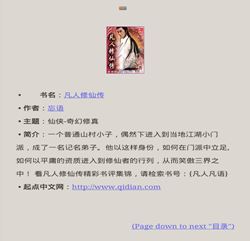Posted on 2013-Sep-23
The Growth Outside the West

Outside the native-speaking countries, eBooks still have huge potential regardless of the major vendors’ presence. If one big question is looming over the logical explanation why many local publishers are still relevant to the publishing scene, one answer that can shroud over curiosity is the ability to understand the needs of the market in its original form and communicative language.
Limited Definition of eBook

According to an extensive article posted by Publishing Perspectives, the writer-Octavio Kulesc, posits that US and European businesses still cannot meet the needs of publishers in developing markets. In order to monitor the growth of eBooks, it seems figures and statistics are inconsistent especially when eBooks are referred exclusively to the term ‘eBook’.
How’s the eBook Market in Asia?

Unlike the Western world where they have data provided by big vendors, the Eastern countries embrace digital publishing as a whole when they discuss the matter regarding eBook. Although there are certain countries like Brazil and Argentina that follow the West’s tradition to connote the analogous comparison between books and eBooks, Asian countries seem to define the likes of electronic book differently.
Free Tablets to Boost Content
For example, due to the variety of indigenous languages in India, the public sector comes up with a project called Aakash to provide up to 220 million tablets to students. Although it remains to be seen how the project will be implemented, the dream goal of having students access a broader range of content might stir the publishing scene in the near future considering that several companies have been developing content for this particular device. In China, the huge potential in the sheer number of authors and readers is staggering. Online literature is said to boost the digital publishing via the two prominent platforms, Qidian and Hongxiu.
Chinese eBook for Your Curiosity

I scanned the QR code of this book from Qidian and loaded it on my Android smartphone unsuccessfully only to learn how to depend on the better speed of a desktop PC. Reading the EPUB file on Mantano Reader Lite forces the app to automatically close but browsing the same file’s ToC on Adobe Digital Editions told a different story. My assumption was the Chinese characters were too much to handle. Before I gave up on reading the Chinese eBook on my smartphone, I turned to Moon+ on a bigger screen device to get an unexpected result. Moon+ made my reading a breeze to navigate through different pages and chapters without interruption.

While Qidian provides various solutions for multiple devices, Hongxiu focuses on a different strategy with a simpler twist. Reading an eBook on a web browser can be advantageous based on automatic translation from Google if you have the latest version of Chrome installed as an app on your device. Combining the two platforms together, only the outer space is the limit for your Chinese study through free eBook provision.

First Impression with Compatibility Elation
Having bypassed the strict regulation to sample a foreign-language eBook on a major vendors’ catalogue was such a fun ride now that I am browsing through the complex Chinese characters layout. Although I was well aware of the Chinese Kindle store’s offer, this scan-and-download experiment does indicate that the provider can publicize their content limitlessly. Despite the impressive number of readers and authors previously mentioned, imagine the bigger scale of countless overseas audience waiting to explore the intricate history of Chinese literature.
Building a Relationship

Towards the end of the post, the writer provides two pillar suggestions for the publishers who want to penetrate the emerging markets. In essence, they need to build their relationship with local content providers who know what their consumers want.
eBook as a Part of Digital Publication
Adding Thailand in the loop to shed light on its digital publication market, the eBook growth is going at a slow pace considering the healthy adoption of capable eReading devices: tablets and smartphones. It may be apparent that local publishers are tailoring the content in local language to appeal their niche audience’s preference of traditional publication’s layout. As a matter of fact, eBooks do not always restrictedly mean electronic books in the EPUB/MOBI format according to the profitable business opportunity revealed by one of the nation’s leading eBook stores. Having claimed to be the “interactive e-book platform,” the pictorial advertisement features all-too-familiar foreign magazine covers to be their flagship products.
The Race to the Best Quality Product

Outside the Western territories where “eBook” is advertised and popularized, the definition may vary depending on the region. Apparently, it is up to the local publishers who will provide the best quality content in order to add value to their products. Although the measurable figures to indicate the growth of eBooks may not be up-to-date, the availability of eBooks itself is not necessarily underwhelming according to what the local platforms are attempting to offer. Somehow, no matter how eBook is defined in developing markets and how proficient the publishers/authors can develop and deliver the content based on their client’s needs, it is easy enough to compare the quality of the eBook to the commercially successful version distributed by all the major vendors in the West. Whether the eBook is created by international and/or local content providers, the bar for quality will be raised higher for them to sell to their target readers.
Label: eBook Industry News
comments powered by Disqus